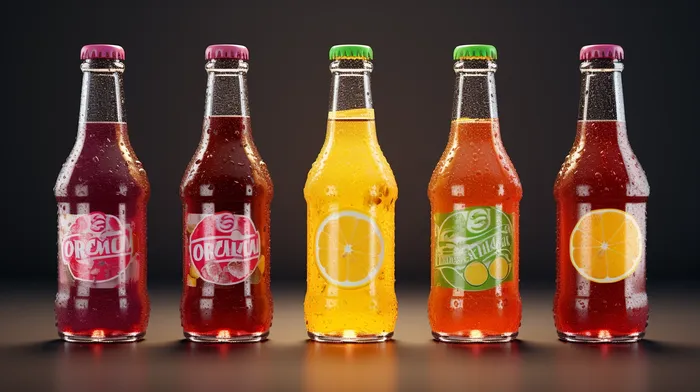If you’ve been reaching for soft drinks and juices made with high fructose corn syrup (HFCS) and thinking you’re making a better choice than regular table sugar, it’s time to think again. Researchers have discovered something on the label that’s more dangerous than you realize.
Scientists at the Childhood Obesity Research Center (CORC) at the Keck School of Medicine at the University of Southern California conducted an in-depth analysis of the chemical composition of popular soft drinks, including Coca-Cola, Pepsi, Dr. Pepper, Mountain Dew, and Sprite. What they found was shocking: all of these drinks contain 50% more fructose than glucose – a significantly higher proportion than food manufacturers have led us to believe.
Why Is This So Bad?
The truth is that HFCS is far more problematic for your body to metabolize than regular table sugar. Table sugar, or sucrose, is composed of around equal parts fructose and glucose.
Michael Goran, Ph.D., director of the CORC and lead author of the study, explains, “We found what ends up being consumed in these beverages is neither natural sugar nor HFCS, but instead a fructose-intense concoction that could increase one’s risk for diabetes, cardiovascular disease, and liver disease.”
The human body is not designed to process this type of sugar at such high levels. Unlike glucose, which serves as fuel for the body, fructose is processed almost entirely in the liver, where it is converted to fat.
False Advertising?
The Corn Refiners Association, a trade group representing HFCS manufacturers, has claimed that HFCS is only slightly different in composition from natural sugar (sucrose), which is composed of equal parts fructose and glucose. However, Goran’s study revealed a fructose to glucose ratio of 60:40 in beverages formulated with HFCS – significantly higher than the equal proportions found in sucrose.
These findings not only challenge the industry’s assertion that sucrose and HFCS are essentially the same, but they also call into question the accuracy of product labels.
Hidden Dangers on the Label
While product labels may claim to contain real sugar (sucrose), Goran’s research indicates otherwise. The study found that beverages like Pepsi Throwback, Sierra Mist, Gatorade, and Mexican Coca-Cola actually contain more than 50% fructose. This suggests that these beverages might contain HFCS, a fact that is not disclosed on the label.
Health Consequences
As the consumption of HFCS has doubled in the United States in the past 30 years, so has the rate of diabetes. This drastic increase in diabetes rates may be directly linked to soda, energy drinks, and sports drinks consumption.
Not only is the American population consuming more fructose than ever before, but they’re also ingesting it in misleading forms without even realizing it.
Michael Goran cautions, “Given that Americans drink 45 gallons of soda a year, it’s important for us to have a more accurate understanding of what we’re actually drinking, including specific label information on the types of sugars.”
Protecting Your Health
The best way to keep yourself protected is to be aware of the hazards associated with beverages containing HFCS and avoid consuming them. Opt for water, herbal tea, or natural fruit juices without added sugars for a healthier choice.
If you must consume sweetened beverages, be sure to read the labels carefully, and whenever possible, choose products made with natural sugars over HFCS.
By making these small changes, you can significantly reduce your risk of developing diabetes, cardiovascular disease, and liver disease. Don’t let a label lie compromise your health – make smart choices and be proactive in safeguarding your wellbeing.



